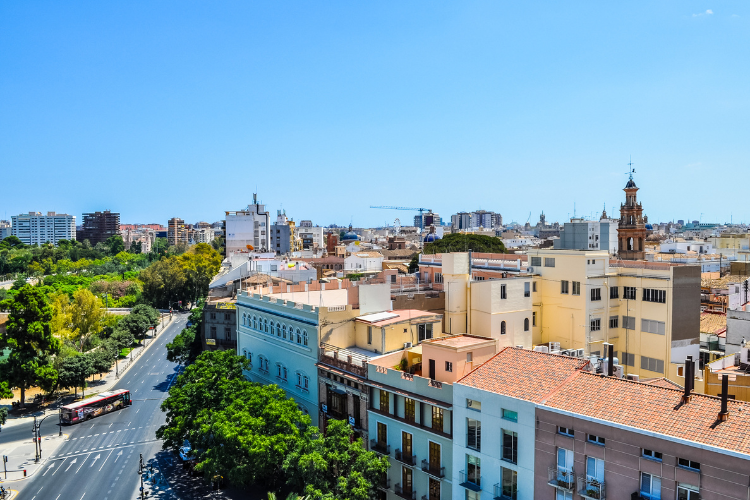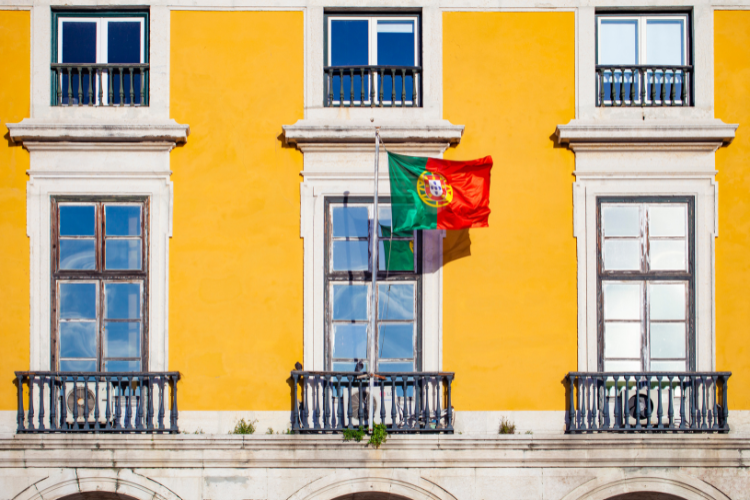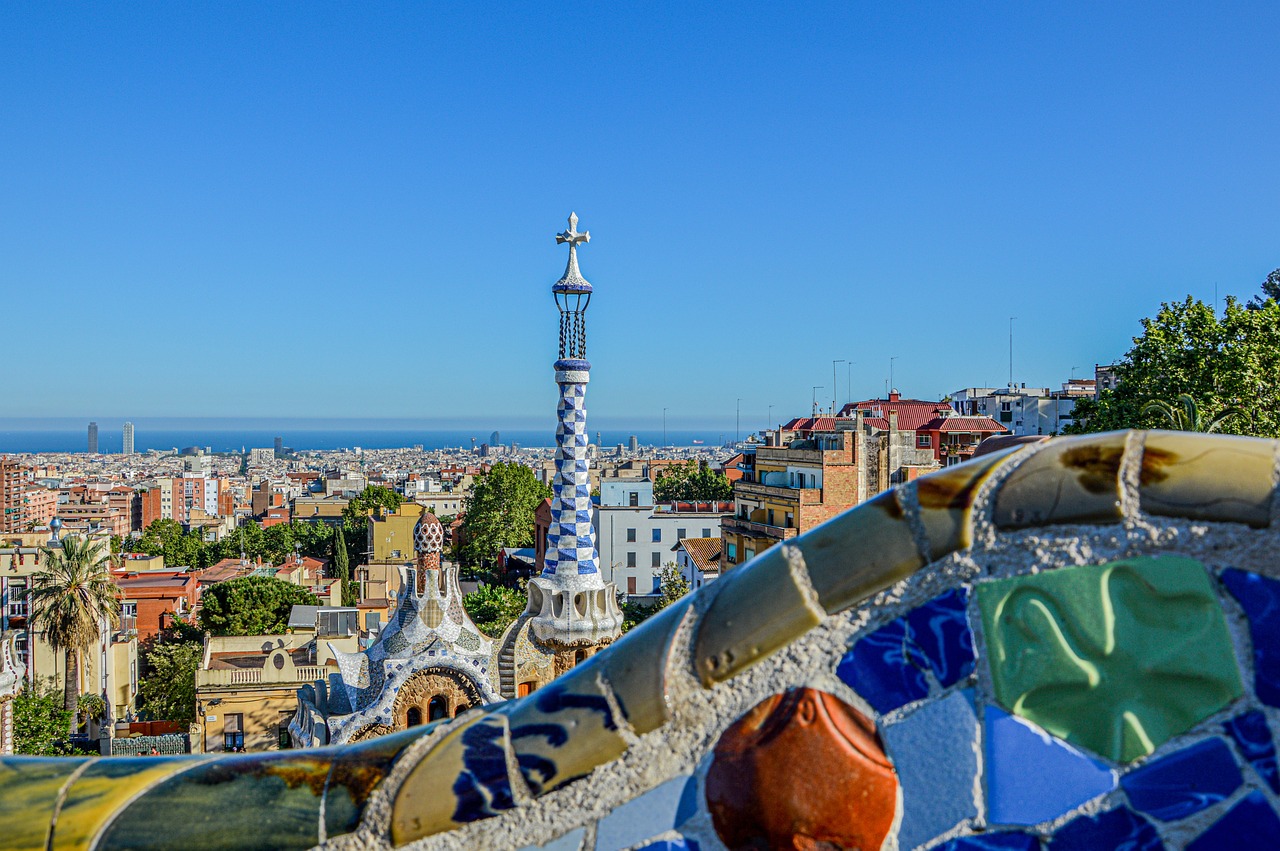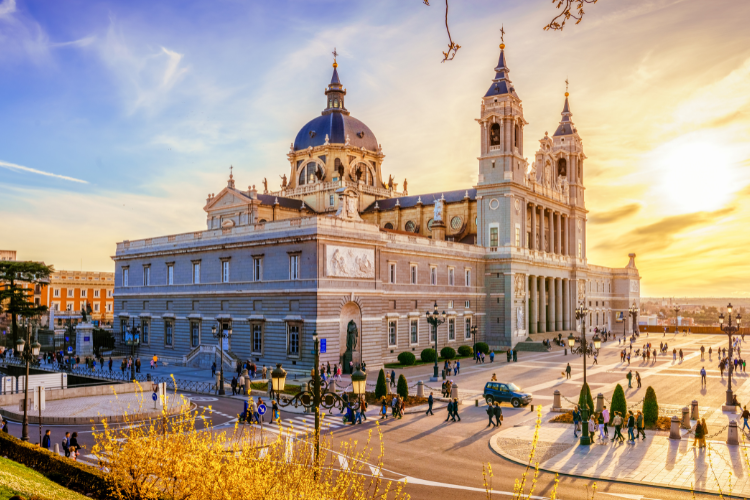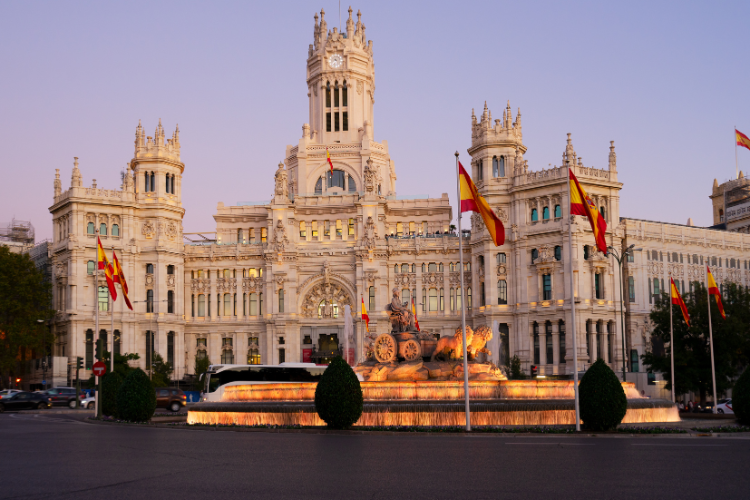Last Updated on January 18, 2024 by Maryam Siddiqui
Let 2023 be the year you change your life forever! Welcome to our complete guide to live in Portugal. It’s not an understatement to say moving to this southern European country changes your life for the better. Hundreds of thousands of people have done it, so how can you get started?
We’ve spent a lot of time and worked so hard to create this article for you. We truly hope this is the best possible guide so you can make a better decision when moving to Portugal.
For those who don’t know Viv Europe, we assist people and other businesses to move to Portugal. Back to the guide. Here you will find some important information so that you can have a better knowledge about Portugal. And we’ll also give some important tips that will certainly help you out here. Happy reading!
Table of Contents:
- Why Portugal?
- Authorization to Reside in Portugal
- Structure of Portugal
- Portuguese Government
- Taxes and Expenses
- Professional activity
- Business Activity
- Tax Information
- Healthcare
We published some relevant information that we consider useful for expats who intend to live in Portugal. This comprises general knowledge, culture, required documents, politics, finance, and the labor market.
First, each country has its own organizational rules. If you arrive in a new country, you must always adapt yourself to conform to the specifics of the environment.
Just one more thing before we start.
We believe in sharing knowledge. That’s why we created the Facebook Group – All About Portugal for Expats. Ask anything you want about this country, and we’ll try our best to answer everyone. Happy reading!
Part I
Why Portugal?
Portugal is a special country in many ways; among them, we can highlight the benefits arising from its location.
Portugal is in southwestern Europe on the Iberian Peninsula.
This country has approximately 92 thousand km². It is bound to the south and west by the Atlantic Ocean and to the north and east by Spain.
Some say that Portugal, along with Spain, Italy, and Greece, have the most pleasant climates on the European continent.
Portugal’s entire surface is located in the region classified as mild according to the Köppen-Geiger classification.
In practical terms, this means that the average temperature in Portugal is 16°C (60.8°F). Almost 18°C (64.4°F) in the south and 13°C (55.4°F) in the north of the country.
Portugal’s social and economic indexes point to the country with a High Development Index (HDI), as determined by the United Nations Development Program (UNDP).
Finally, Portugal occupies the 38th position in the human development ranking.
Some additional interesting information about Portugal:
- The life expectancy of its inhabitants is 81.9 years, one of the longest in the world.
- It has one of the best Healthcare systems in the world.
- It is a member of the European Union (EU) and the United Nations (UN). And also of the North Atlantic Treaty Organization (NATO), and Organization for Economic Cooperation and Development (OECD).
Cost of living
Questions related to the cost of living in Portugal are quite common.
Even though Portugal is a small country in the territorial dimension, it has different living cost standards depending on the region under analysis.
The first rule is: the smaller the city’s structure (considering the circulation routes, number of healthcare centers, entertainment spots, etc.) and the further away from big urban cities, the lower the cost of living.
There are small cities in Portugal where the activities carried out in the region are essentially related to agriculture, and the “traditional way of life” is very striking.
Among them, we can highlight the municipalities of Cinfães, Tabuaço, and Celorico de Basto.
However, despite not having the structure of large cities, they are peaceful places where people usually know each neighbor.
- Want to check the list of all Portuguese cities, and it’s the respective population? Just click here.
These kinds of cities are perfect for those who want to escape the hustle and bustle of urban centers.
In this sense, Bragança is a perfect example of a city for those who seek this peaceful way of life.
- Read Also: Cost Of Living In Portugal Versus The USA.
Breakdown of cost of living
Portugal also has large urban centers, where corporations (and their qualified professionals), malls, and business centers are commonly located.
We all know these regions quite well, and we can highlight, among them, the cities of Lisbon, Porto, and Faro.
Well, although these regions are quite different, Portugal has one unique characteristic. All daily costs (except those related to housing), are quite similar regardless of the city where you live. And they are usually quite low when compared to the rest of Europe.
Thus, expenses for electricity, water, gas, central heating, television, internet, and food are very similar, regardless of the location.
At this point, we recommend reading the article “Complete Guide to the Real Estate Market in Portugal” for more information.
As for the distance between smaller cities and large urban centers, Portugal stands out for having three cities as reference located in strategic places:
Thus, as Portugal is a small country, no matter where you intend to settle, it will be located close to one of these metropolises.
It is precisely for this reason that more and more people are seeking to live in smaller cities, close to big ones.
From this point of view, the cities of Braga, Setúbal, and Portimão stand out.
In relation to the city of Braga, we can consider the following approximate monthly costs, considering a couple’s situation:
| Expenses | Costs |
|---|---|
| Rent | €700 |
| Basic (Electricity, Heating, Cooling, Water, Garbage) for 85m2 Apartment | €109 |
| Internet | €36 |
| Mobile Phone Monthly Plan with Calls and 10GB+ Data | €19 |
| Groceries | €350 |
| Transport | €80 |
| Other expenses | €100 |
| Total | €1,400 |
Data is from Numbeo (as of January 2024).
Quality of life
Quality of life comprises attributes of a given location that contribute to a less stressed lifestyle.
This includes the availability of essential “must-haves”, such as healthcare, safety feeling, mobility options, and basic infrastructure.
For this subject, few countries are better qualified than Portugal.
When it comes to health, Portugal has an outstanding public healthcare structure, comprising local health posts and also public and private hospitals, aimed to serve its entire population.
For this reason, Portugal was one of the few countries in which healthcare did not collapse due to the situation of Covid-19.
It is also noteworthy that foreigners may have access to public health as long as they obtain their Utente Number, which is a great advantage for expats.
As for security, Portugal is the seventh-safest country in the world, according to the Global Peace Index 2023. As an example, France ranks 67th, Brazil 132nd, South Africa 130th, and the USA 131st.
Finally, in relation to mobility, Portugal was elected by the “Transport Assessment Panel” as the second European country with the best roads. Which has resulted, since 2010, in a reduction in the number of deaths resulting from traffic accidents.
Public transportation should also be highlighted since Portugal has a railroad that crosses the entire country, from north to south.
As for the subway service, Lisbon and Porto have a well-structured underground transportation system.
In relation to buses, most cities are well equipped with affordable vehicles for commuting.
Portuguese Language
Fluency in Portuguese is a common concern for people from Anglophone and Francophone countries who intend to live in Portugal.
First of all, we have to keep in mind that Portuguese citizens have an excellent public education system, and English is taught in schools as an elementary course. That’s why English is commonly used in Portugal.
But if you want to improve your Portuguese skills, there are many options in the palm of your hand. Free online courses are quite popular for this reason.
As for the French language, it is important to notice that Portugal and France have a strong connection built over the years, which is why the exchange of citizens between these two countries is quite frequent and has been increasing over time.
For this reason, there are some Portuguese cities where the French language is commonly spoken, mainly in the northern part of the country.
Currently, approximately 20,000 French people reside in Portugal, being the seventh-largest foreign community in this country, behind Brazil, Cape Green, Romania, Ukraine, the United Kingdom, and China.
However, French citizens are those who most acquired property in Portugal, then came the British, Brazilian, Swiss, and Chinese citizens.
Despite this situation, we recommend that you learn Portuguese, at a basic level, before arriving in Portugal since you’ll probably face people, mainly the elderly, who can only communicate in this language.
Also, you may need to sign documents (such as contracts and receipts), which are often written only in Portuguese.
Authorization to Reside in Portugal
Depending on the citizen’s country of origin, different types of activities must be done to enable regular residence in Portugal.
Let’s start our analysis with citizens nationals from countries outside of the European Union. For them, which include, for example, Brazilians, South Africans, and British, it will be necessary to apply for a visa.
Viv Europe has a Complete Guide on Visas for Portugal. In this document, you will check all the requirements to obtain a visa. Why not take a look?
As for citizens nationals of countries within the European Union, Iceland, Liechtenstein, Norway, and Switzerland, the registration process for residency is simplified. In this case, the one and the only requirement is to obtain the Certificate of Registration for European Citizens to enable residence in Portugal.
This document also authorizes expats to study, develop a business and work in Portugal.
Obviously, for each of these procedures (and depending on the citizen’s country of origin), it will be necessary to present specific forms and certificates, which is why we recommend the assistance of qualified professionals.
Let’s Move to Europe
With Viv Europe your plans for Europe will come to a reality
Part II
Structure of Portugal
About the Portuguese Government
It may seem an irrelevant topic for the expat who only intends to reside in Portugal; however, getting to know Portugal’s structure can help in making important decisions related to residence in this country.
This subject takes on special importance for expats who intend to reside in Portugal for some reasons, among them:
- The possibility of understanding and monitoring the political decisions made by the government, especially those concerning the situation of immigrants; and
- Decision-making regarding the feasibility of residing in Portugal since the expat must comply with government guidelines.
We believe it is of great relevance to know, even if it’s just the tip of the iceberg, the characteristics of the country in which we intend to reside.
Also, knowledge about the country can be crucial in:
- Choosing a place of residence;
- Finding jobs;
- Making up a strategy to reduce the payment of fees and taxes.
Therefore, at this moment, we will carry out an analysis of the main aspects of the Portuguese power structure.
Executive Power (Presidency)
In Portugal, the semi-presidential regime is in effect. In other words, the President of the Republic, elected by the majority of the vote, acts as head of state, and the Prime Minister represents the government in force.
The President also commands the Armed Forces and has a duty to inspect the government.
Additionally, the President has the responsibility to appoint the Prime Minister and has the power to dissolve the government and the Assembly of the Republic.
He can also dismiss the Prime Minister to ensure the smooth functioning of democratic institutions. For this to happen, he must listen to the Council of State, which has a purely advisory role.
Legislative Power
The Assembly of the Republic is responsible for drafting and approving the laws applicable in Portugal.
This entire law procedure is carried out exclusively by the Assembly of the Republic precisely because the Legislative Branch is unicameral, without the presence of the Senate.
The Assembly of the Republic is made up of 230 deputies organized into parties.
Among them, we can highlight the following:
- Social Democratic Party (PSD)
- Socialist Party (PS)
- Popular Party (PP)
- Left Block (BE)
- Portuguese Communist Party (PCP)
- Ecologist Party (PEV)
- People-Animals-Nature (PAN)
Deputies represent geographic areas called electoral circles, which are currently divided into 22.
Each electoral circle has a specific number of seats in parliament, proportional to the number of voters in the region.
Like the President of the Republic, the Assembly of the Republic has the prerogative to overthrow the government by voting in favor of an instrument called “Motion of Censorship”, which requires the approval of 116 of the 230 votes of deputies.
Government Representation
In Portugal, the head of the Government is represented by the Prime Minister, who is appointed by the President of the Republic and is usually the leader of the party most voted in the legislative elections (but not necessarily).
As head of the Executive Branch, the Prime Minister coordinates the action of the ministers, represents the government, reports to the Assembly of the Republic, and keeps the President informed of issues related to governance.
The Prime Minister also signs decrees, but the promulgation of the legislative act is the exclusive responsibility of the President.
Judiciary Power
Finally, the Judiciary Power, which is responsible, among other prerogatives, for adjudicating disputes related to individuals and the State itself and is represented by its public agents (judges).
It is an independent power whose members are distributed to act in Courts located throughout Portuguese territory.
According to the Constitution, the Courts are the sovereign bodies with the competence to manage justice in the name of the people.
This power emanates binding decisions for all public and private entities, prevailing over those of any other authorities.
There are currently 4 jurisdictions in Portugal, namely:
- Constitutional Jurisdiction (Constitutional Court)
- Common Jurisdiction (Judicial Courts)
- Administrative Jurisdiction (Administrative and Tax Courts)
- Financial Jurisdiction (Court of Auditors)
Portuguese Government
Current Government
Portugal’s current President of the Republic is Marcelo Rebelo de Sousa. He is a charismatic person who has the approval of the vast majority of the Portuguese people.
Marcelo has worked for years as an academic, teaching at the Faculty of Law of the University of Lisbon and as a journalist and political commentator.
Marcelo joined the Social Democratic Party (PSD) in May 1974 and was the first elected president of the Lisbon District Political Commission (1975-1977) of this party. It was in Politics that he became notorious and developed his career.
The President appointed the Prime Minister of Portugal, Mr. António Luís Santos da Costa, who had a career as a lawyer and politician.
Image | José Cruz – Agência Brasil | Wikimedia Commons
Mr. Costa was the Mayor of Lisbon from 2007 to 2015 and currently holds the position of Secretary-General of the Socialist Party (PS).
He has served as Prime Minister of Portugal since November 26, 2015.
Currently, Portugal has a government strongly influenced by leftist principles. Thus, the political parties most representative of the current configuration of the Assembly of the Republic are:
- Socialist Party (PS) with 108 deputies
- Social Democratic Party (PSD) with 79 deputies
- Left Bloc (BE) with 19 deputies
Part III
Taxes and Expenses
We will now analyze the Portuguese Tax System.
Let’s analyze the tax obligations of citizens who decide to reside, work or undertake in Portugal.
Portugal is a country recognized for its attractive tax conditions for expats.
We will carry out the analysis of the main program to attract professionals and investments to Portugal for the benefit of the citizen who intends to reside in this country: The Non-Habitual Resident Tax Regime.
Then, let’s focus on the taxes and expenses that affect the payroll of an employee in Portugal, and finally, we will talk about the situation of the entrepreneur in this country.
If you want to check our answers to the most popular tax-related questions, check our FAQ by clicking here.
The Non-Habitual Resident regime
We know that one of the main reasons why people choose Portugal as a destination is its tax regime, which is based on the reduction of the tax burden as a way to attract highly qualified professionals and also to encourage investment of foreign capital.
For this reason, Portugal issued Decree-Law n. 249/2009 as a way of attracting these professionals and investments.
In this context, only some professionals are able to apply for the Non-Habitual Resident regime, as provided in Ordinance No. 230/2019, of which we can exemplify the following:
- Directors
- Doctors
- Specialists in Information and Communication Technologies (IT)
- Market-oriented farmers and skilled agricultural and livestock workers
It is worth emphasizing that Viv Europe has carried out a Complete Analysis of the Non-Habitual Resident Tax Regime.
In order to encourage the arrival of citizens who will also be able to contribute to the growth of Portugal’s commercial activities, retired foreign citizens are also able to benefit from this tax regime.
Therefore, these professionals and retired citizens from other countries will be able to enjoy the following benefits, based on the status of Non-Habitual Resident:
- If the professional develops any of the professions provided by the law in Portugal, he/she will only be required to collect tax arising from his / her income at the maximum rate of 20%.
- In the case of retired citizens, their income related to retirement will be taxed on a lower scale for purposes of Income Tax (IRS) in Portugal, at the rate of 10%.
To benefit from this tax regime, these citizens must not have been considered tax residents in Portugal in the last five years preceding the application.
It is also important to note that the aforementioned benefits are valid for a period of 10 years.
Costs arising from the exercise of activities
Now, let’s move on to the analysis of the taxes that are levied on income resulting from the exercise of professional activity and also on the expenses resulting from developing a business activity in Portugal.
Professional activity
Usually, if an expat works as an employee in Portugal, he/she must pay taxes under the same conditions as a Portuguese citizen.
In this case, the following taxes will be due:
Personal Income Tax (IRS)
This is the tax on the worker’s income.
It must be paid annually and corresponds to the revenue received by the employee during this period.
Therefore, depending on the received income, a corresponding rate should be applied.
Currently, the following table is in force in Portugal:
- Scale 1 – up to €7,112 – rate: 14.50%
- Scale 2 – from €7,112 to €10,732 – rate: 23%
- Scale 3 – from €10,732 to €20,322 – rate: 28.50%
- Scale 4 – from €20,322 to €25,075 – rate: 35%
- Scale 5 – from €25,075 to €39,967 – rate: 37%
- Scale 6 – from €39,967 to €80,882 – rate: 45%
- Scale 7 – more than €80,882 – rate: 48%
Therefore, a worker without children, who receives a monthly gross salary of €1,500, will receive a net salary of around €1,068.
Indirect Taxes
In addition to the IRS, the citizen must also pay indirect taxes directly levied on the goods and services he consumes on a daily basis.
This value is already part of the final price paid by the consumer.
We’re talking about the famous Value Added Tax (VAT) levied on consumer goods, which is paid whenever the citizen purchases food products in markets, electronic products in stores, when carrying out a medical consultation, etc.
The rate of this tax changes depending on the type of product or service consumed.
In mainland Portugal, the following rates are in force:
- Reduced rate – 6%
- Intermediate rate – 13%
- Normal rate – 23%
Other Taxes
Portugal has other types of taxes.
Among them, we can highlight those related to the acquisition and maintenance of properties, motor vehicles, and alcoholic beverages, among others.
Business Activity
Let’s now focus our attention on the costs incurred in developing the business activity.
An expat who plans to develop any business activity in Portugal must consider some expenses.
Among the main expenses, we can highlight the following:
Employees
Employee costs (payroll) usually reflect the company’s main disbursements. In Portugal, employees receive a total of 14 salaries per year.
In addition to the salary, the employer must pay a share of the worker’s Social Security payment at the rate of 23%, and the worker must pay the remaining 11%.
Payment by the employer of accident insurance is mandatory and falls on 1% of the employee’s salary. The food contribution will range from around €6 per workday.
Thus, considering an employee who receives a gross monthly salary of €1,200, his annual salary (plus insurance and food) will correspond to €22,409, and his effective monthly cost to the company will be around €1,867.
Other Expenses
Obviously, in addition to employee expenses, the employer must spend the required costs for the development of the activity. Among them, we can highlight the following:
- Acquisition of material
- Logistics
- Acquisition or lease of property
- Hiring an accounting service
- Hiring service providers
- Payment of registration fees
- Purchase of machinery
- Marketing activities, among others
Corporate Income Tax (IRC)
Finally, the IRC is the most important tax levied on income resulting from the exercise of business activity.
It is applicable to the taxable amount (which corresponds, quite simply, to the difference between the total income and the total expenses of the company in a period).
IRC rates apply to the taxable amount. For most companies, the rate is 21%.
Also, in most municipalities, the municipal surcharge in the amount of 1.5% must be included, levied on the taxable amounts.
The analysis of the company tax must be carried out by a qualified accounting professional, given the complexity and responsibilities arising from this function.
Tax Information
We will discuss in this topic the main activities that the expat must carry out as soon as he/she moves to Portugal.
These activities are divided into:
- Legal obligations that must be performed under penalty of non-compliance with a legal duty, or
- Advice, that is, activities that are not mandatory but recommended so that the expatriate citizen will not have financial losses.
It is important to mention that the failure to carry out such activities may result in administrative sanctions, such as the imposition of fines or, in the worst-case scenario, the extradition of the citizen in an irregular situation.
Obviously, depending on the reason that led the citizen to move to Portugal, different obligations may arise.
We will only deal with some important activities that an expat needs to carry out.
Tax Identification
The Tax Identification Number (NIF) is undoubtedly one of the most important Portuguese identification documents and can be required by the Finance department.
This document is required for tax identification purposes. Only by having this number will the citizen be able to declare his taxes.
Also, whenever a citizen carries out commercial transactions in Portugal, he/she may inform the NIF number for deductions on his / her Income Tax (IRS).
In this way, the more the person consumes, the more he/she will be able to deduct tax amounts. Therefore, we recommend always mentioning this number when purchasing goods or services in Portugal.
You need the NIF on several occasions of daily life. Such as when hiring a property for rent or for purchase, opening a bank account, signing an employment contract, enrolling in a Portuguese university, etc.
In order to obtain the NIF in Portugal, the citizen will need to present the following documents:
- Passport
- Proof of address in Portugal
- Signed requirement
If the citizen does not have a property in Portugal, whether rented or owned, he/she will need to indicate a person to represent him/her for tax-related subjects in order to request the NIF.
This representative, who must have an established residence in Portugal, will receive all correspondence regarding the tax situation of the represented citizen.
After the expat settles permanently in Portugal, he/she can request the NIF update to cease the representation.
Declaration of Departure from the Country of Origin
Continuing to analyze tax obligations, let’s talk about the Declaration of Definitive Departure from the country of origin.
This concerns the obligation to inform the country of origin Tax Department about the change of residence and, consequently, the tax domicile.
In this sense, it is important to highlight that each country has its own regulations for this procedure.
It is up to the taxpayer to choose the address that will be appointed as the tax domicile. Based on this decision, the country that will collect the citizen’s taxes will be selected.
In this sense, depending on the country of origin and of the residence, different procedures and obligations may apply, especially due to agreements signed between countries.
It is important to highlight that there are currently many international agreements to avoid double taxation by the taxpayer.
These international agreements are of great relevance since the expat citizen may be receiving income from his / her country of origin.
The most common income in this regard is as follows:
- Rental income
- Receipt of dividends
- Performance in the stock market
- Retirement
As a rule, the existence of an agreement to avoid double taxation between countries requires the expat citizen to perform the declaration and the payment of income tax in the country of residence, usually declared as a tax domicile.
For this reason, Portugal has been a very popular country in terms of residence by European citizens, especially as a result of the tax incentives granted to expats who meet certain requirements.
Social Security
In Portugal, citizens can register for Social Security and receive the NISS: the Social Security Identification Number.
All workers who wish to work and live in Portugal need to have a NISS.
The worker receives his salary already discounted from the Social Security payment share, which corresponds, in most cases, to 11% of the salary.
After the registration and payment of social security funds, the worker may receive (if they meet the requirements) retirement income and also those resulting from parental leave, sick leave, and unemployment benefits, among others.
In order to obtain the NISS, it is necessary to present an Employment Promise or Contract.
It is important to mention that the employer is the one who must communicate the hiring of an employee to Social Security, which will then create the employee’s NISS.
This is an obligation for the employer to hire an employee; for this reason, many of them do not accept applications for employment from citizens who do not have an active NISS.
In the case of a self-employed person, he/she must apply for the NISS directly at Social Security, presenting proof of service provided through Green Recipes.
In addition to the Employment Promise or Contract, the applicant must submit the following documents for the purpose of obtaining a NISS (if he/she) is not a European citizen:
- Valid Passport with legal entry stamp in Europe
- NIF
- Residence permit (with work permit)
- Mod RV 1006 -DGSS form completed
If the citizen is European, he/she must present the documents numbered 2 and 4.
Finally, a quick note. Since 2019, the legislation related to retirement in Portugal has changed.
Nowadays, for retirement reasons, the citizen must have at least 66 years and 5 months and a minimum contribution time of 15 years for both men and women.
Part IV
Additional Topics
To conclude this article, let’s analyze some complementary topics that we believe are relevant for the expat who intends to reside in Portugal.
Portuguese Health System
Let’s now talk about the Portuguese Public Health system, which is essential if you’re planning to live in Portugal.
The expat can always consult at a private clinic in Portugal. However, the fee for a private medical consultation can vary between €30 to €60, while public healthcare is free for all legal residents since June 2022.
To use the Public Health system, the expat will need a Utente Number.
After obtaining this document, he/she will be addressed to a Family Doctor who will be his / her general practitioner.
To obtain the Utente Number, you will need to go to a Health Center and present the following documents:
- Passport
- NIF
If you are a European citizen, your path is simplified, as there are international treaties that allow access to Public Health among countries that are members of the European Union.
As an example, a French citizen may have access to public health from European countries by presenting a carte européenne d’assurance maladie, which you can get by filling in the Formulaire S1.
In any case, if the French citizen is registered with the Social Security of Portugal, he/she may also obtain the Utente Number and have a doctor appointed.
Conclusion
We have reached the end of this guide which aims to convey a comprehensive understanding of how to live in Portugal.
We hope that this information was useful and that it helped to broaden your knowledge about this very special country.
If you have any questions, want to share your opinion, or know more information, join our Facebook Group or contact professionals from Viv Europe.



